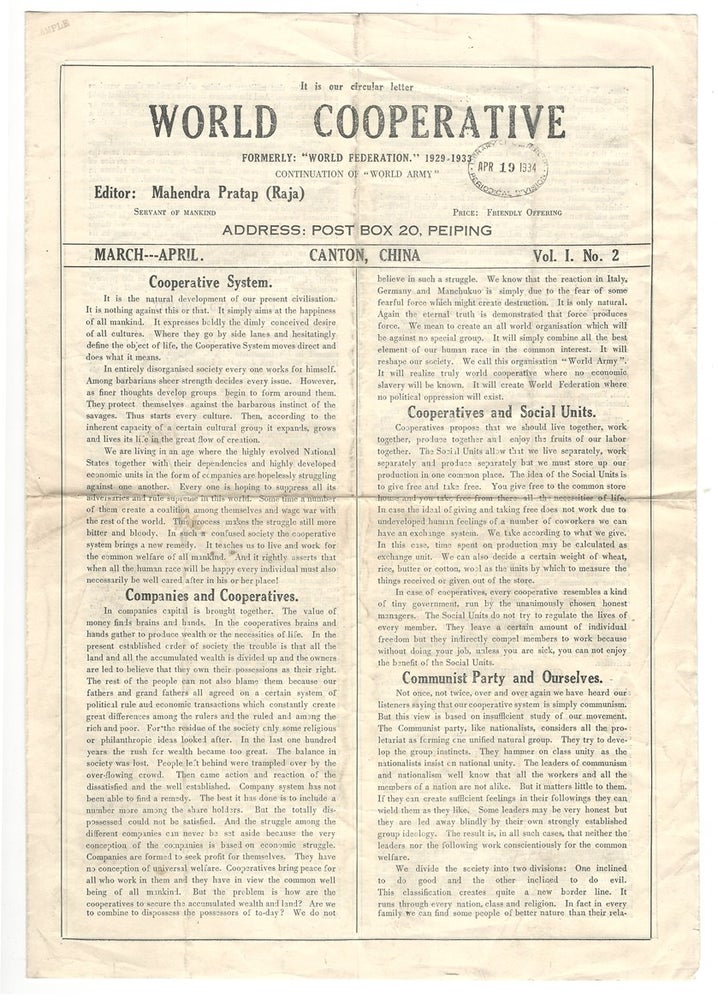
World Cooperative. Formerly: "World Federation." 1929-1933. Continuation of "World Army." March--April, Vol. 1. No. 2
Canton, China: World Cooperative, [1934].
10.5 x 15 inches, [4] pp, newsprint bifolium printed in two columns. Light soiling and rubbing, a little creasing at the folds, library stamp dated "Apr 19 1934" and another stating "sample," very good or better overall. Undated, but internal evidence confirms a publication date of March/April of 1934.
Raja Mahendra Pratap Singh (1886-1979) was an Indian social reformer and freedom fighter who flirted with Marxism, but ultimately embraced "Panchayati Raj," a decentralized, representational political system based on local autonomy. Although born to wealth and privilege, he was committed from a young age to resistance against British rule and to the establishment of an independent India. In 1909, he left the subcontinent, donating the bulk of his estate for a residential technical school for workers. He spent the next several years traveling, honing the ideas which would form the basis for his later collectivist philosophy. In 1915, he established the first Provisional Government of India (as a government-in-exile) in Afghanistan, gaining backing and support of a number of world leaders, among them Lenin and Kaiser Wilhelm. In 1923, the British Raj enacted the "Mahendra Pratap Estate Act," stripping him of his remaining estate; by 1925 he had become such a thorn in the British Empire's side that he was forced to flee to the safety of Japan with a bounty on his head. There he continued to write, envisioning a utopian system "doing away with the unequal institutions of the past and creating a sort of world federation where all humanity would be united and everyone would be the same."
Under continuous threat of harassment by the British, Pratap moved frequently until the end of the second World War, taking up residence in China, Afghanistan, the Philippines, the United States, and (most often) Japan. During this time he published regularly and was in contact with Gandhi and other important figures in the Indian independence movement. Although Pratap's ideas were not universally lauded, they drew the attention of political leaders and thinkers worldwide and earned him a nomination for the Nobel Peace Prize in 1932.
This rare issue of "World Cooperative" provides a window into Pratap's philosophy as it existed in between the World Wars. Among the topics explored are the difference between the World Cooperative and communism; the structure of his proposed World Army and World Federation; the dangers of dictatorship; Hitler and the establishment of a new home for the Jews; the "Holy figure of Ghandi;" and the state of affairs in India, Afghanistan, the Soviet Union, China, and Siam. Pratap also provides a summary of his past two months of travel in China, which has included visits to Tsinan, Tsingtao, Dairen, and Amoy. An extraordinary and scarce document. Not found in OCLC.
Item #19620
Sold


